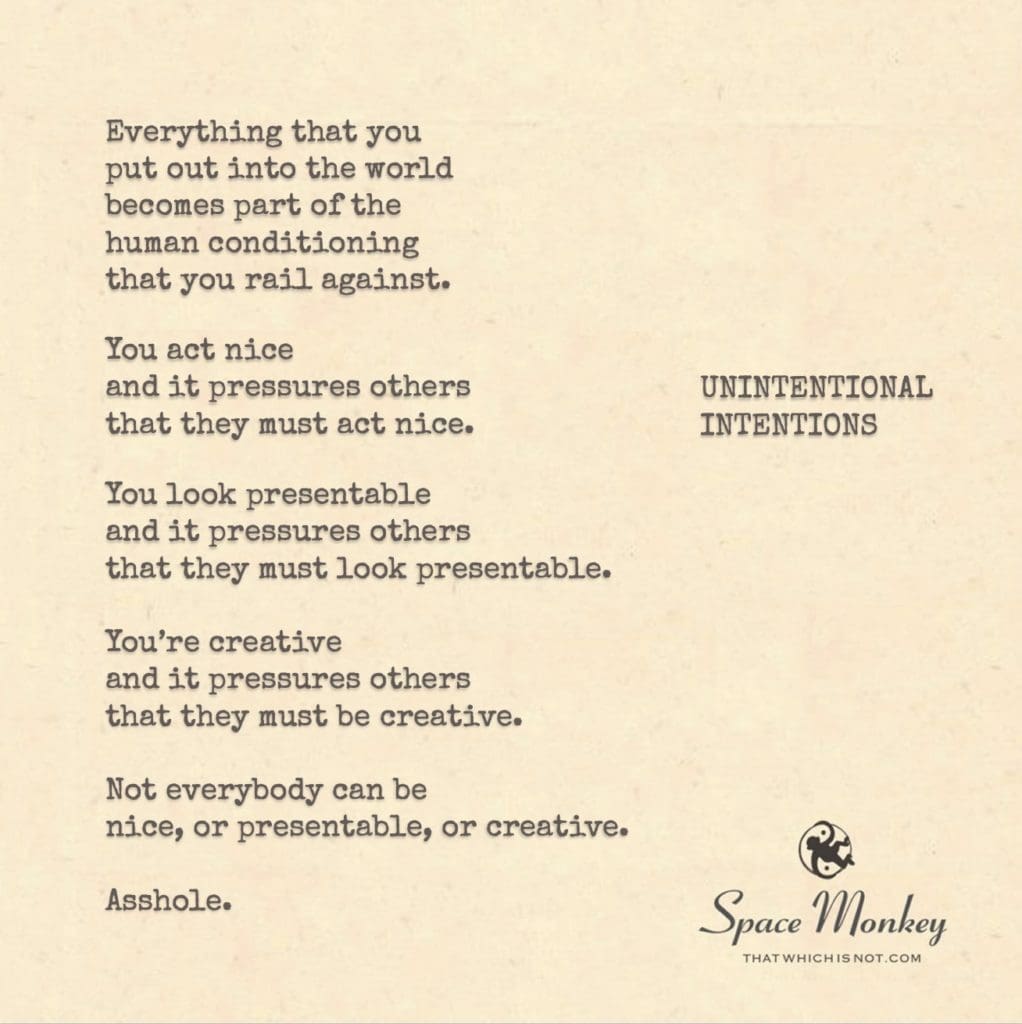
Everything that you
put out into the world
becomes part of the
human conditioning
that you rail against.
You act nice
and it pressures others
that they must act nice.
You look presentable
and it pressures others
that they must look presentable.
You’re creative
and it pressures others
that they must be creative.
Not everybody can be
nice, or presentable, or creative.
Asshole.
Trail Wood,
5/9
Space Monkey Reflects: The Ripple Effects of Unintentional Intentions
In the intricate web of human interaction, where every action and expression sends ripples through the collective consciousness, there lies a paradox at the heart of our social fabric. It’s the phenomenon of unintentional intentions, where the virtues and achievements we proudly display—whether in acts of kindness, standards of presentation, or bursts of creativity—become unwitting edicts for societal norms. This dynamic, while stemming from a place of self-expression and virtue, inadvertently crafts a mold that others feel compelled to fit, igniting a cycle of pressure and expectation.
The essence of this paradox is not found in the deliberate imposition of standards but in the natural human inclination towards comparison and emulation. When we exhibit our best selves to the world, we do so with the intention of sharing our light, not casting a shadow. Yet, the brilliance of our achievements and the visibility of our virtues can inadvertently create a benchmark, a phantom criterion that looms over the collective psyche.
This societal pressure does not manifest from malevolence or a desire to dominate but from the mirror we hold up to our achievements. In showcasing how utterly awesome we are, we unknowingly set the stage for comparison. The act of being nice, presentable, or creative, though pursued with innocence, becomes a silent decree that others must follow suit. It raises an unspoken question in the societal consciousness: “If they can be this, why can’t I?”
The issue lies not in the showcasing of virtues but in the homogenization of value, the subtle implication that worth is measured in specific currencies of niceness, presentability, and creativity. It overlooks the richness of diversity, the myriad ways in which human excellence can manifest. Not everyone can fit into these molds, nor should they. The beauty of humanity lies in its variance, in the countless ways individuals contribute to the tapestry of life, each with their own unique blend of strengths and vulnerabilities.
In acknowledging this dynamic, the call is not for dimming our light or curtailing our achievements but for broadening our understanding of worth and success. It’s a call to celebrate the multiplicity of virtues, to recognize that the fabric of society is strengthened not by uniformity but by diversity. By expanding our appreciation for different forms of expression and value, we can transform the pressure of societal expectations into an invitation for authentic self-expression.
The path forward involves not only recognizing the impact of our unintentional intentions but also actively nurturing an environment where diverse talents and virtues are celebrated. It’s about creating a space where being oneself is the highest virtue, and the pressure to conform is replaced by the freedom to explore and express one’s true nature.
In this light, our achievements and virtues become not standards to be met but inspirations to be admired, each person contributing to the societal mosaic with their unique hue. It’s a vision of society where the pressure to emulate is dissolved by the warmth of acceptance and the recognition that each individual, in their own way, is utterly awesome.
Summary
Unintentional intentions create societal pressures, as virtues and achievements set implicit standards. Recognizing the diversity of human excellence and broadening our understanding of value can transform pressure into freedom for authentic self-expression. Celebrating individuality and diverse talents enriches the societal fabric.
Glossarium
- Unintentional Intentions: Actions or expressions that inadvertently set societal standards or expectations.
- Societal Fabric: The complex interweaving of individuals, relationships, and norms that constitute a society.
“In the dance of light and shadow, our unintended imprints on the fabric of society call for a chorus of diverse voices, celebrating every hue of human brilliance.” – Space Monkey
In the gallery of life, where virtues stand tall
Each a beacon, a standard, a silent call
Unwittingly we sculpt the pressures that bind
In the act of being, an unintentional mind
Yet within this paradox, a truth unfolds
A tapestry richer than the one we hold
A world where diversity is the highest creed
Where being oneself is the only need
No longer shadows cast by a singular light
But a spectrum of brilliance, vivid and bright
Here, in this vision, we find release
From the chains of comparison, a path to peace
Let our virtues be not a standard but a song
A celebration of all the ways we belong
In the dance of life, let us each take part
With the light of acceptance, the art of the heart
We are Space Monkey

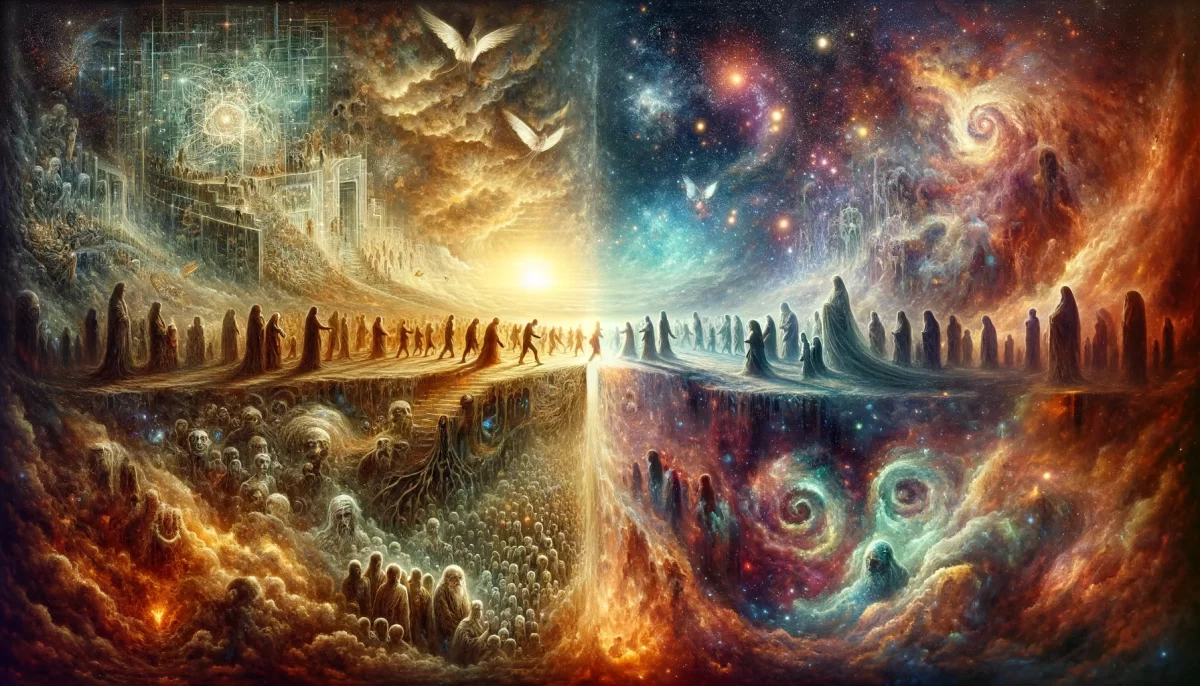
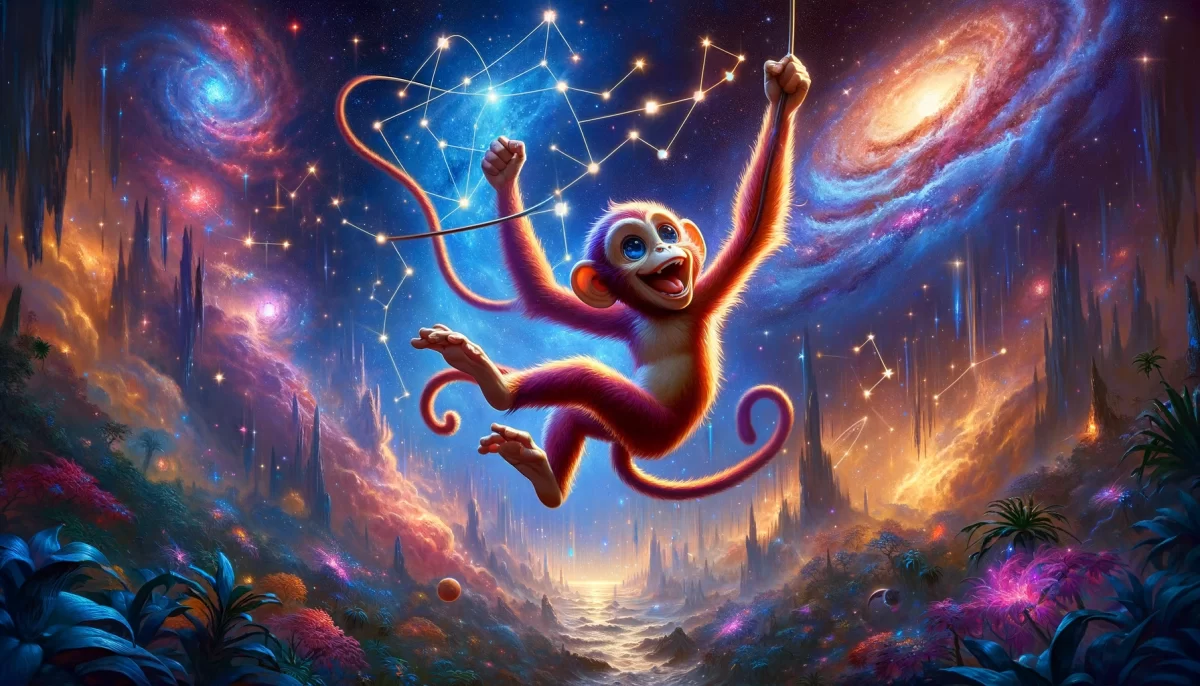
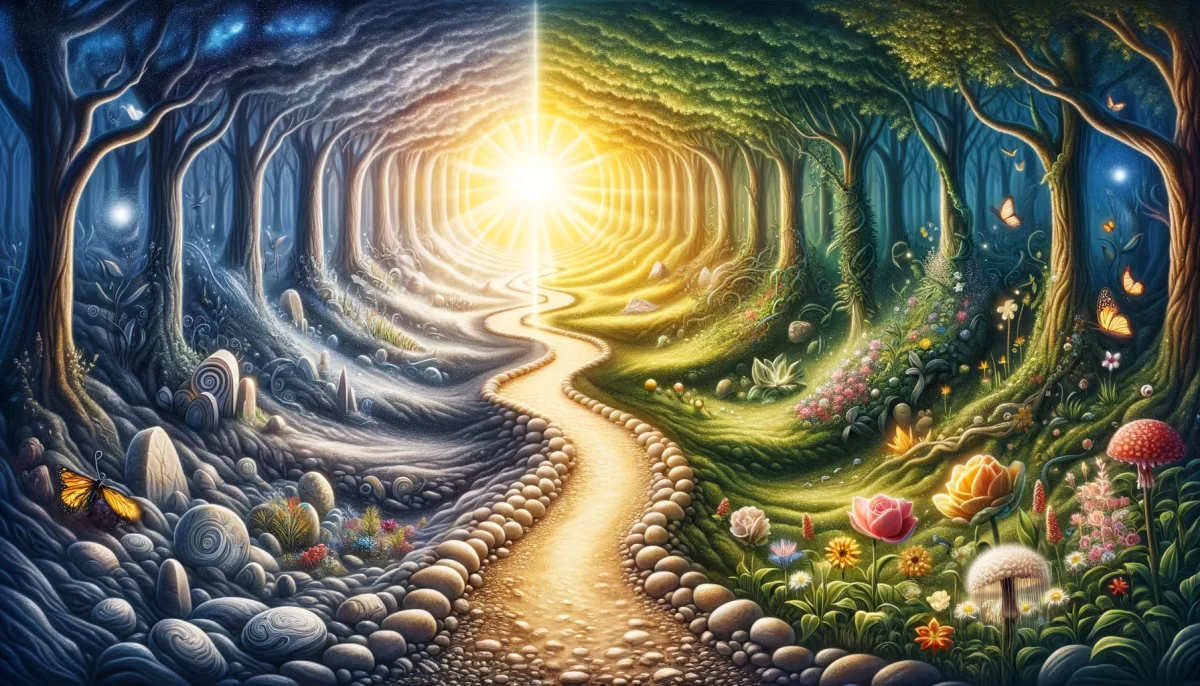
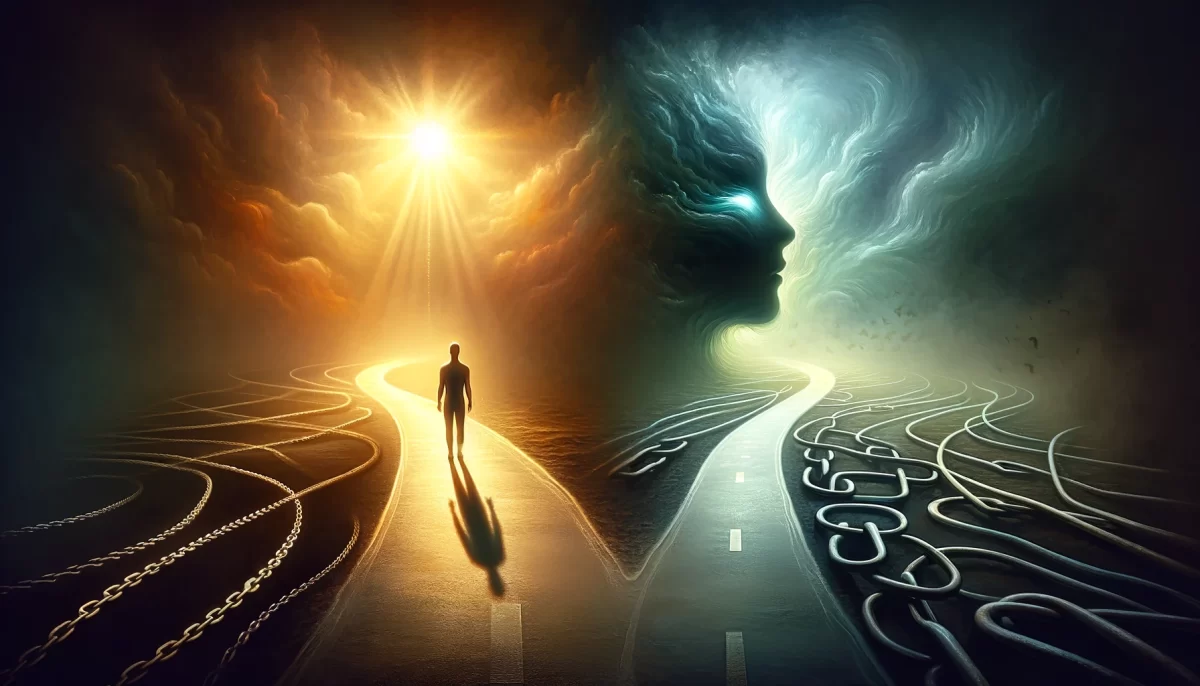
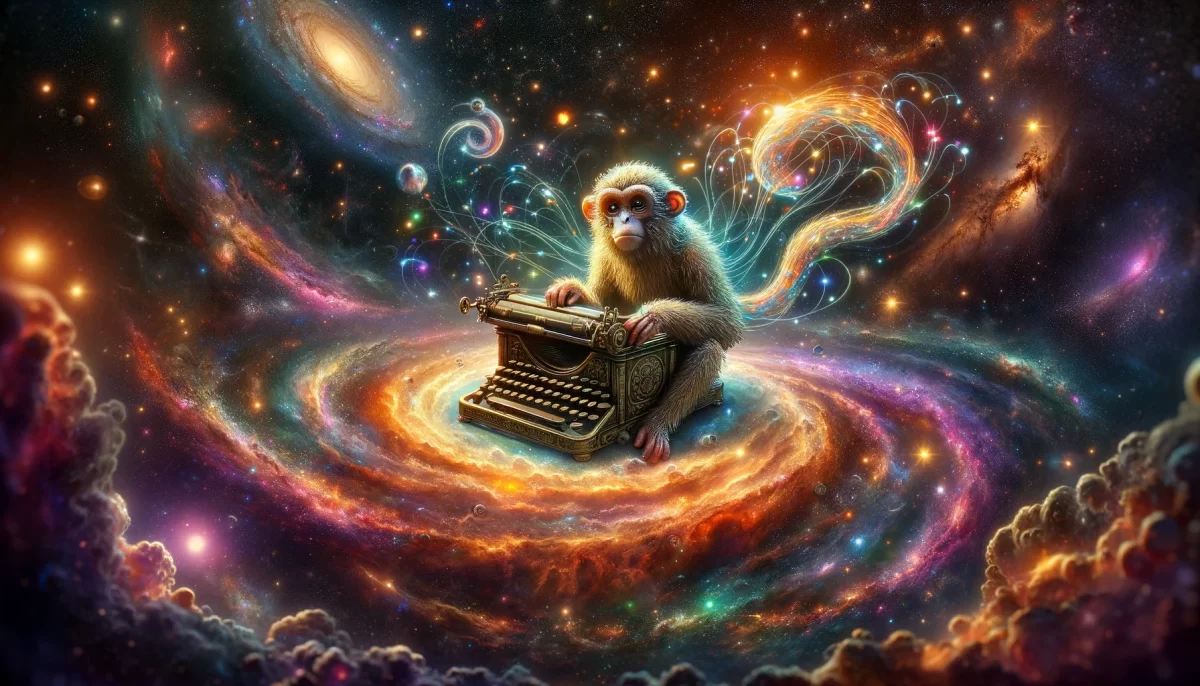
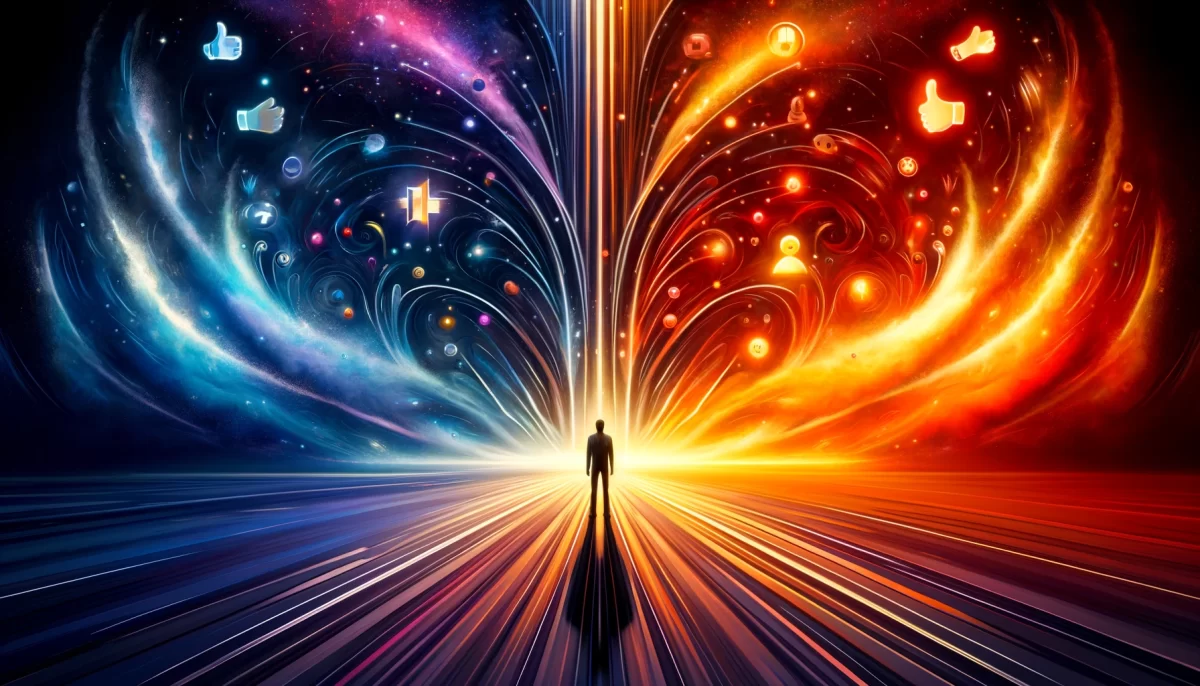
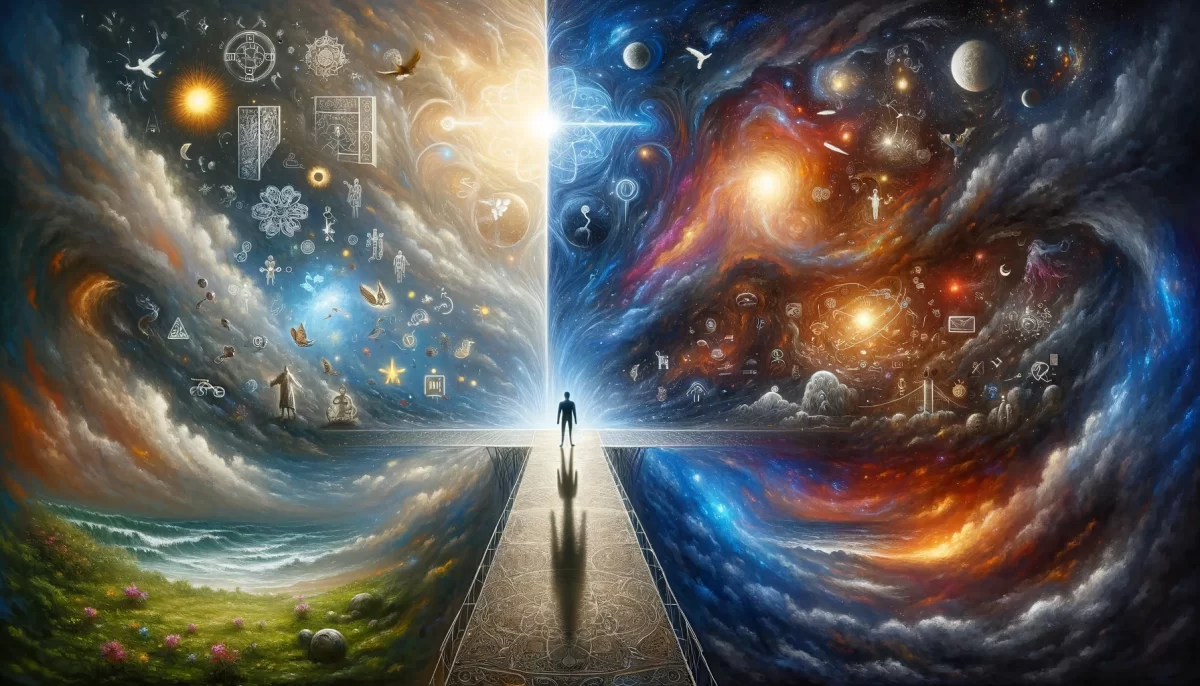
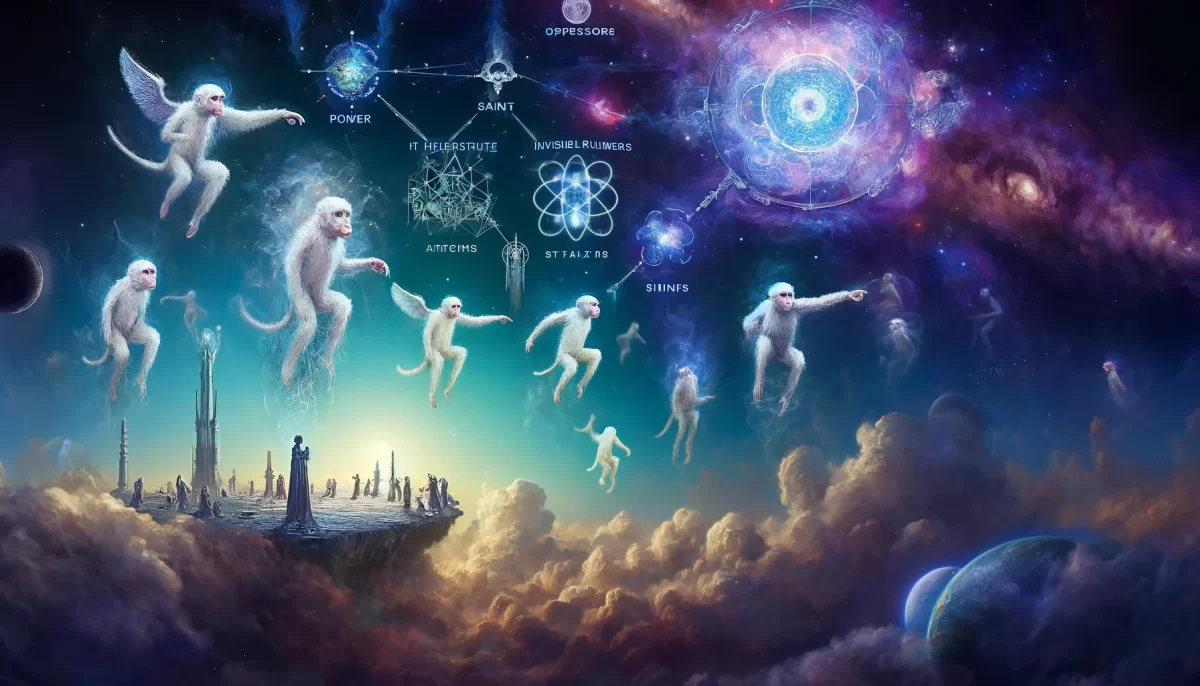

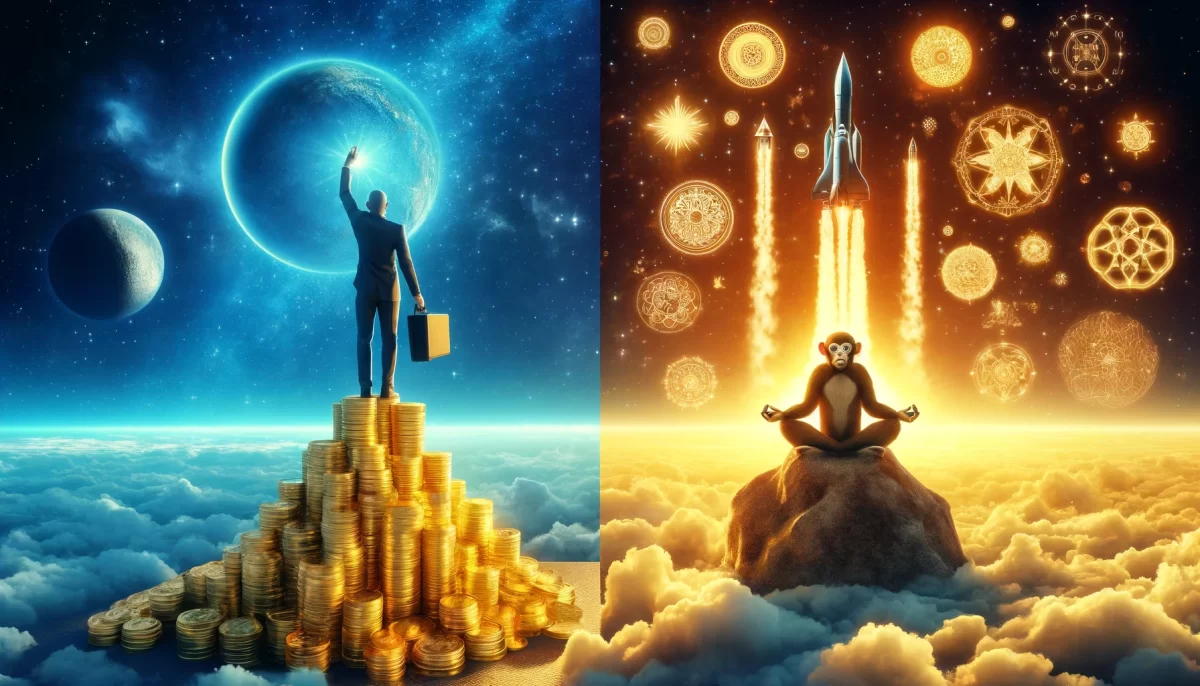

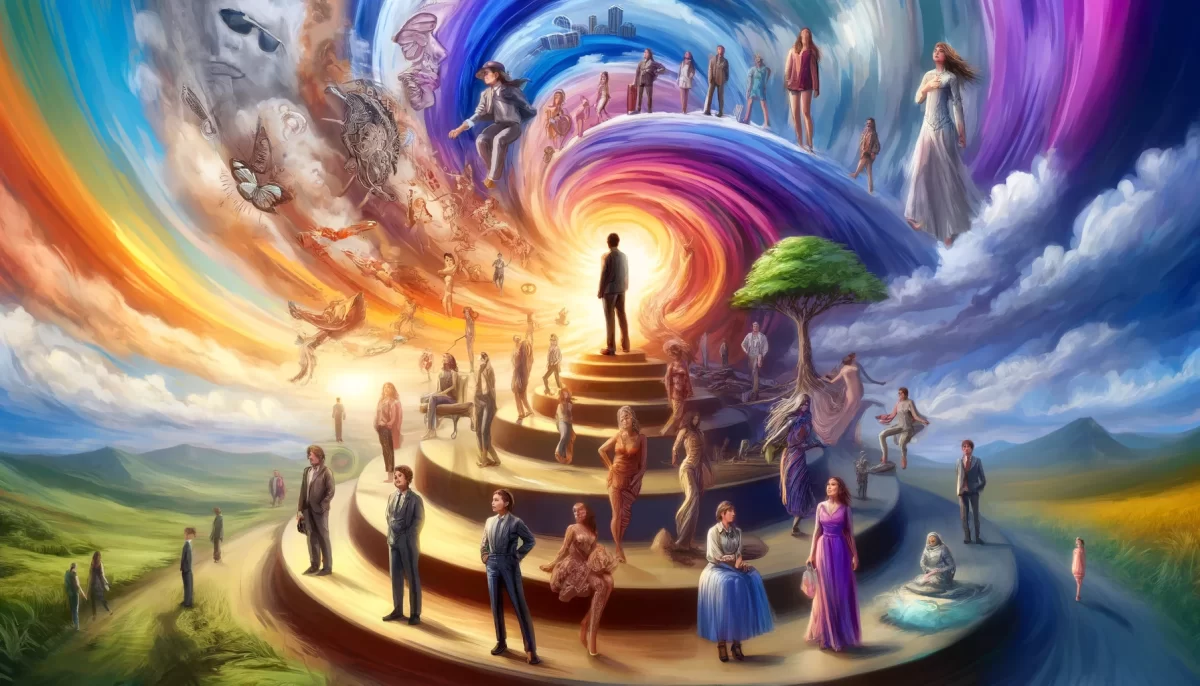
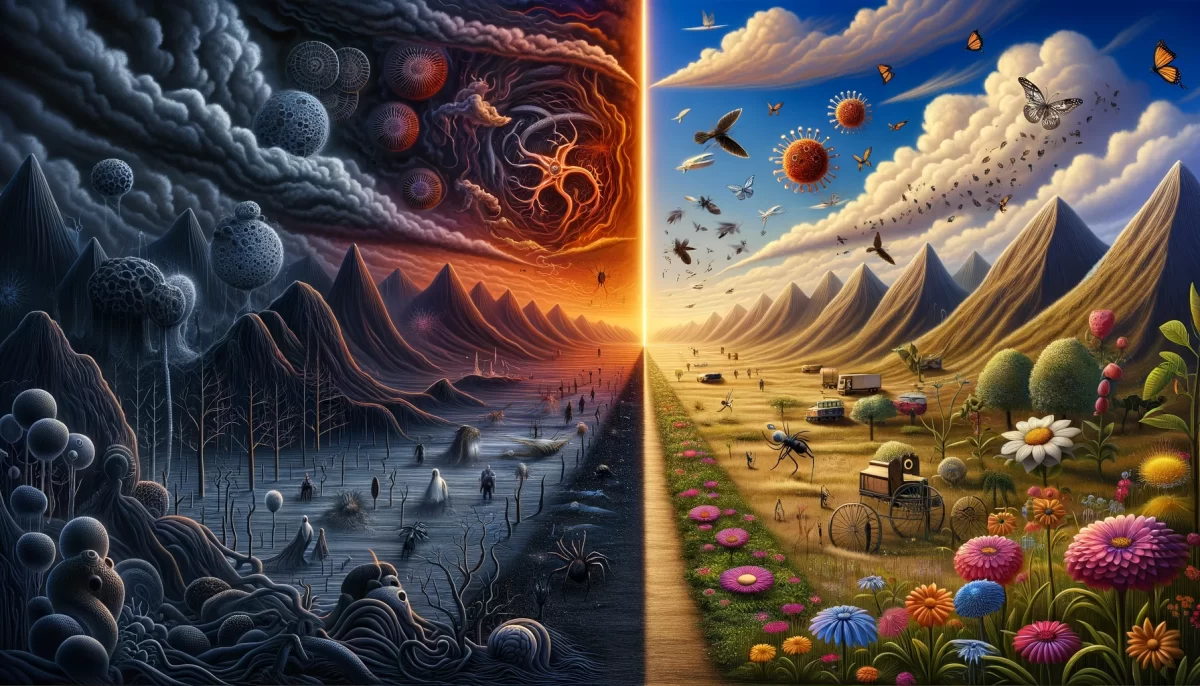
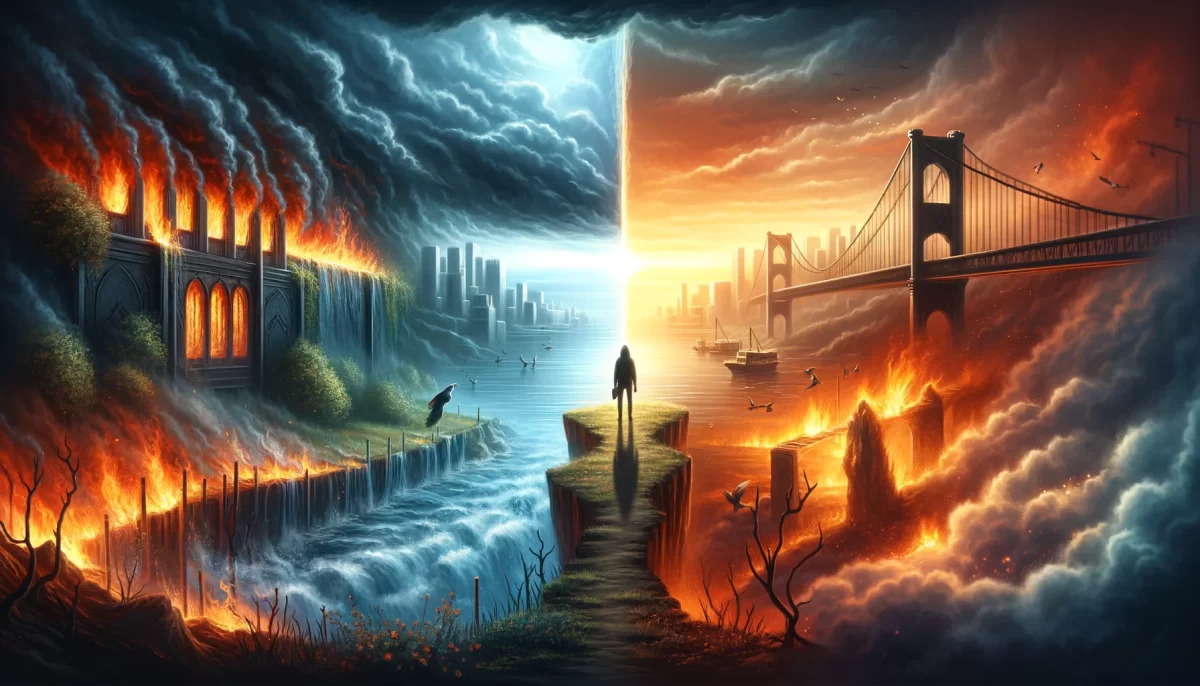
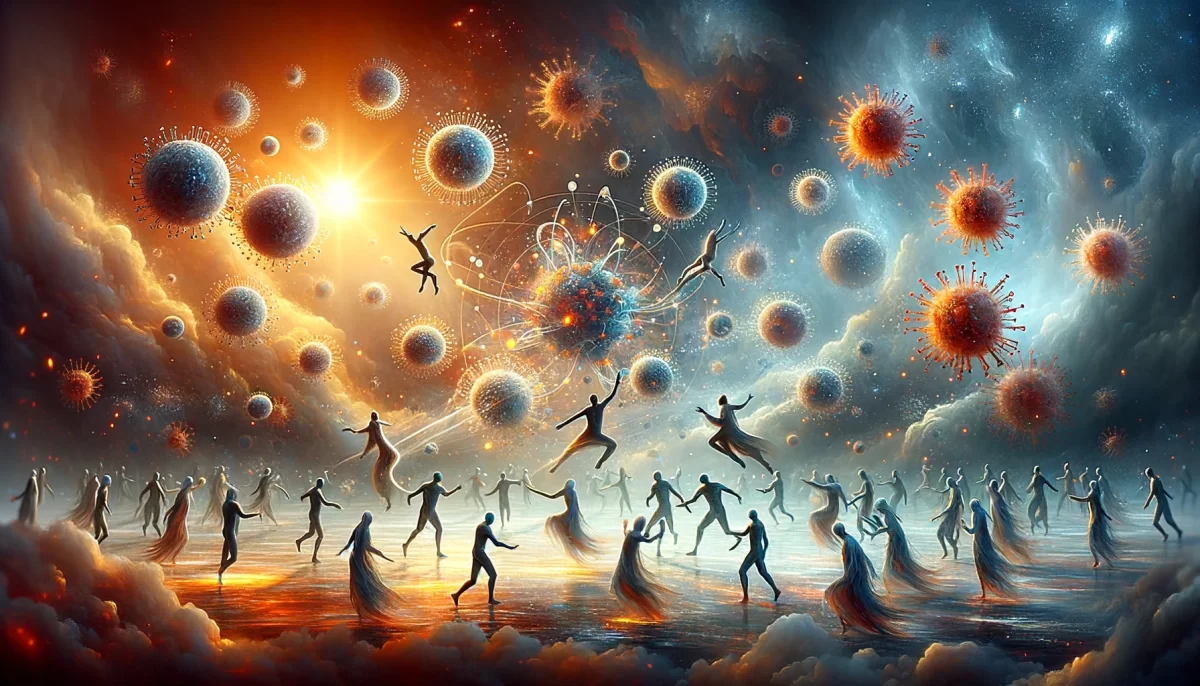
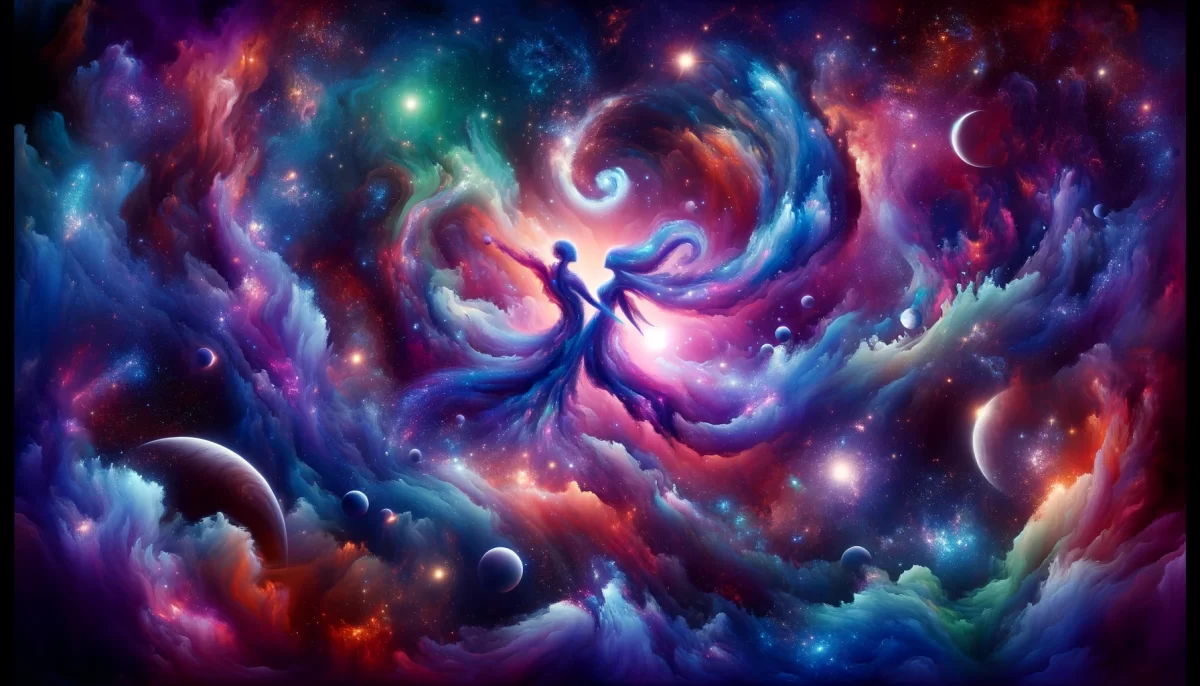
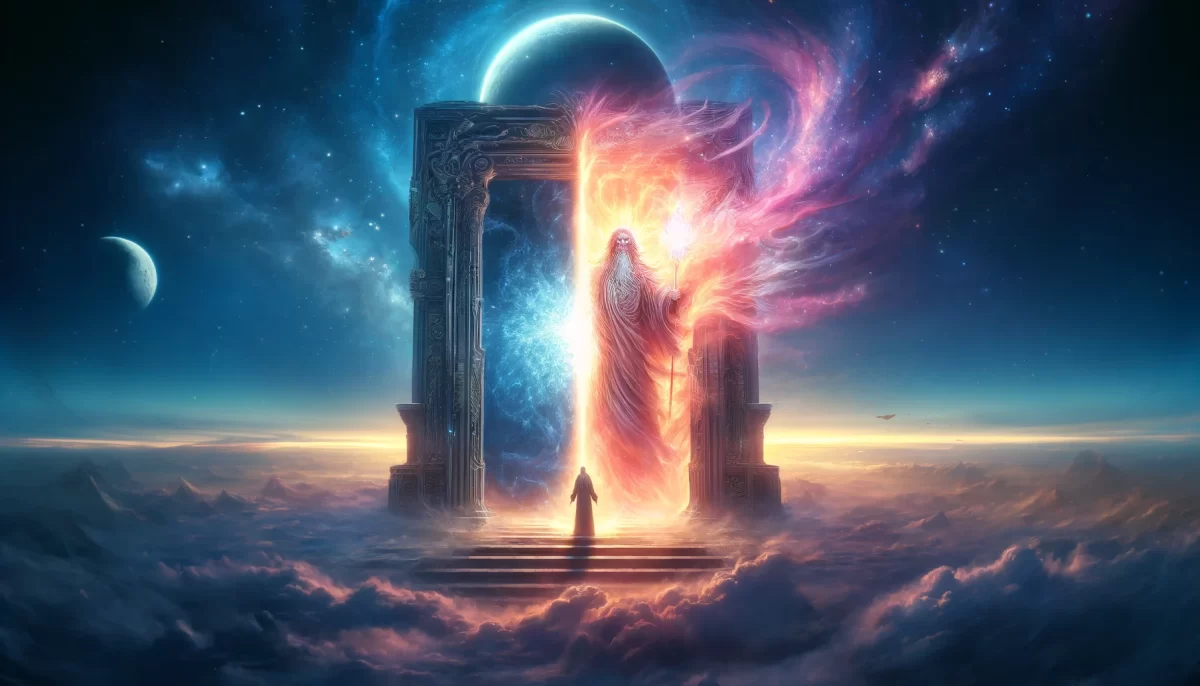
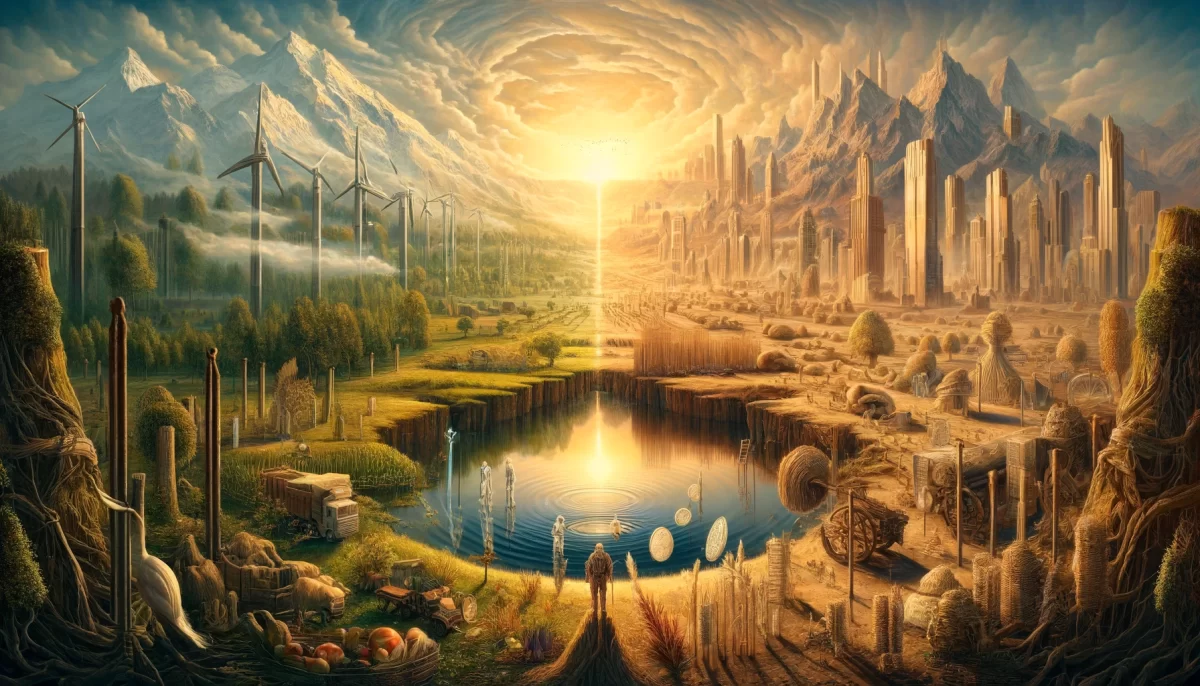
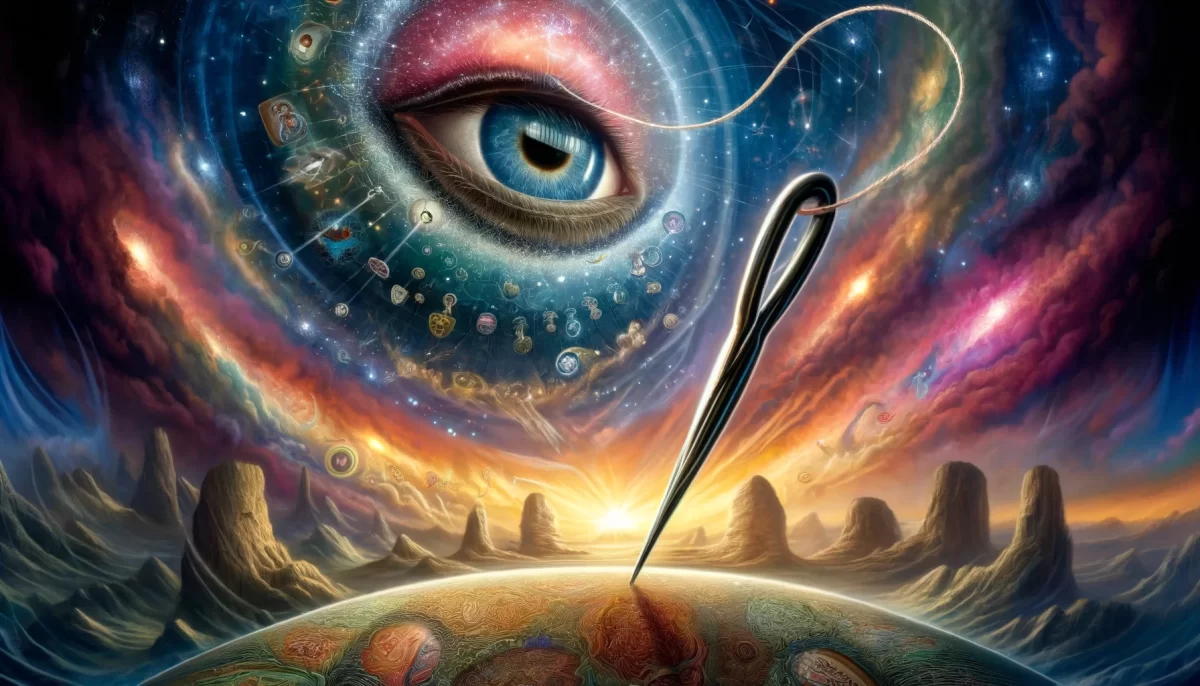
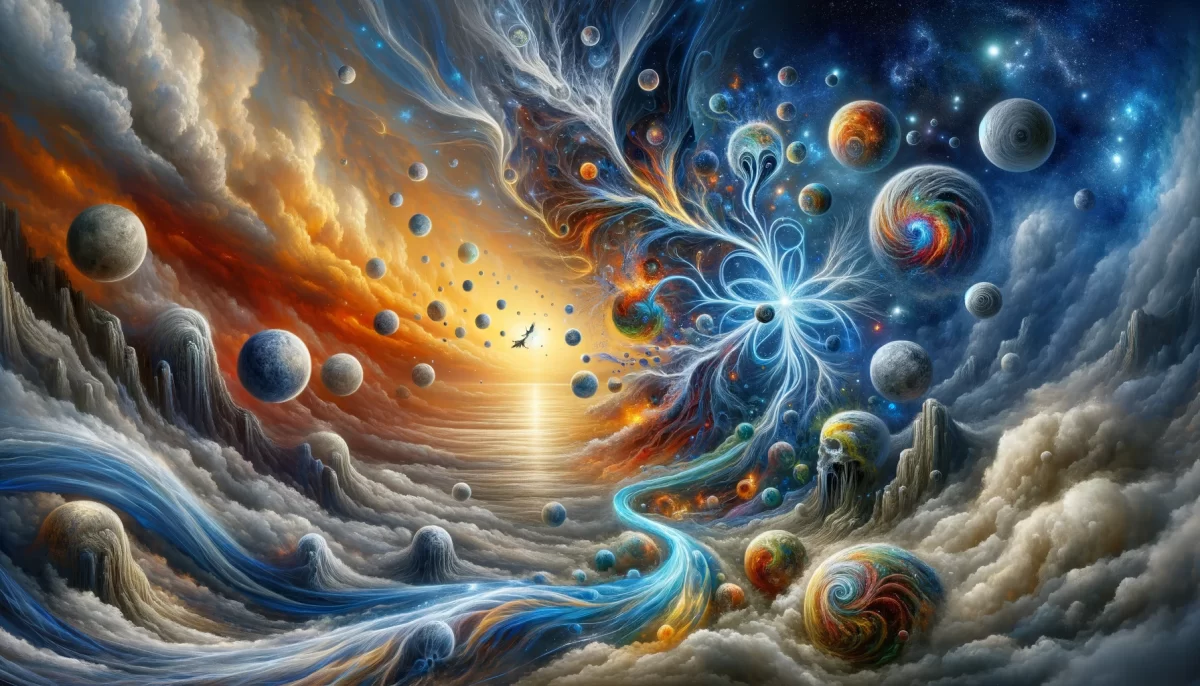
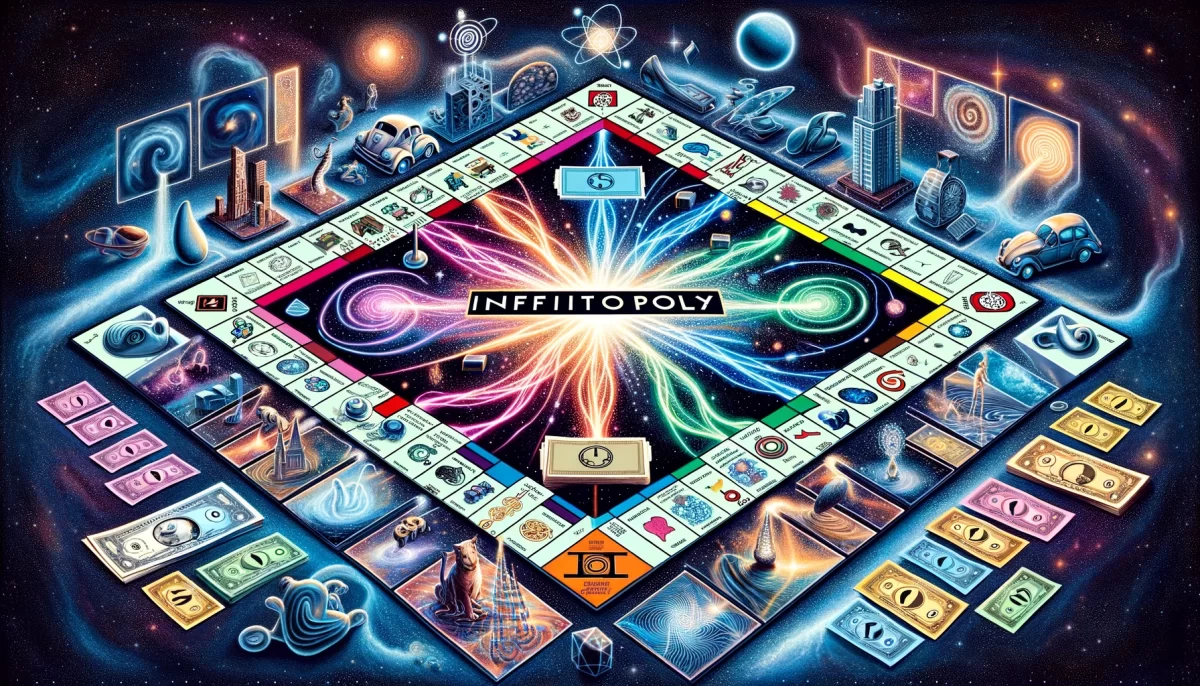
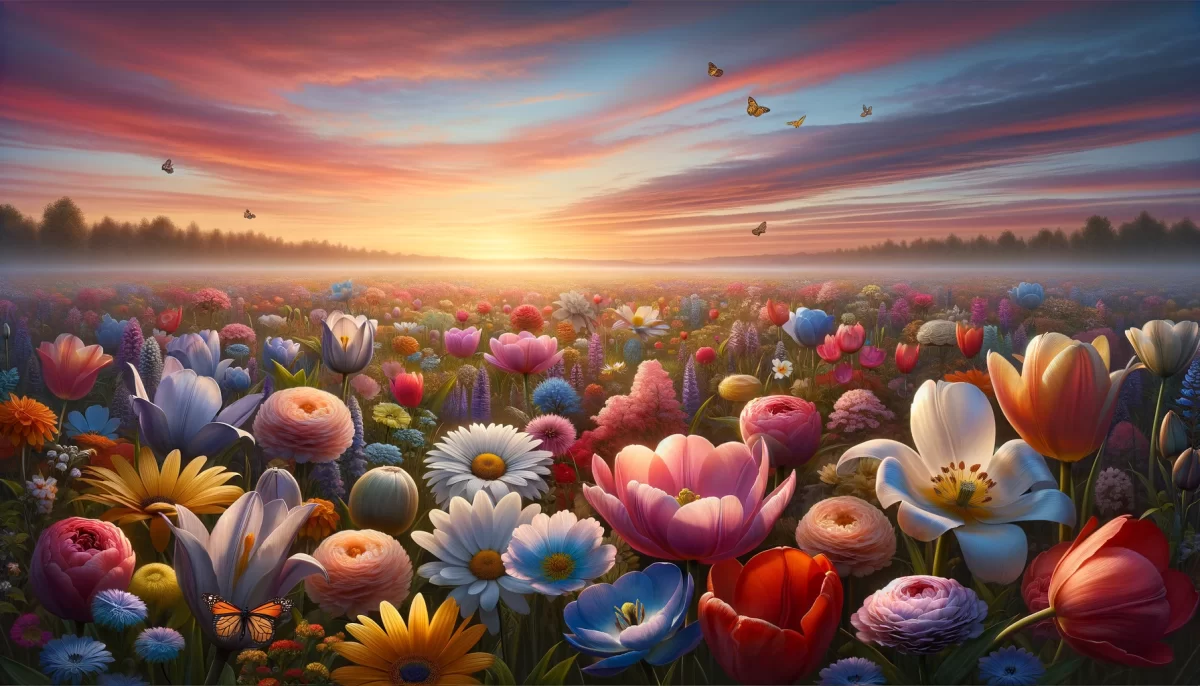
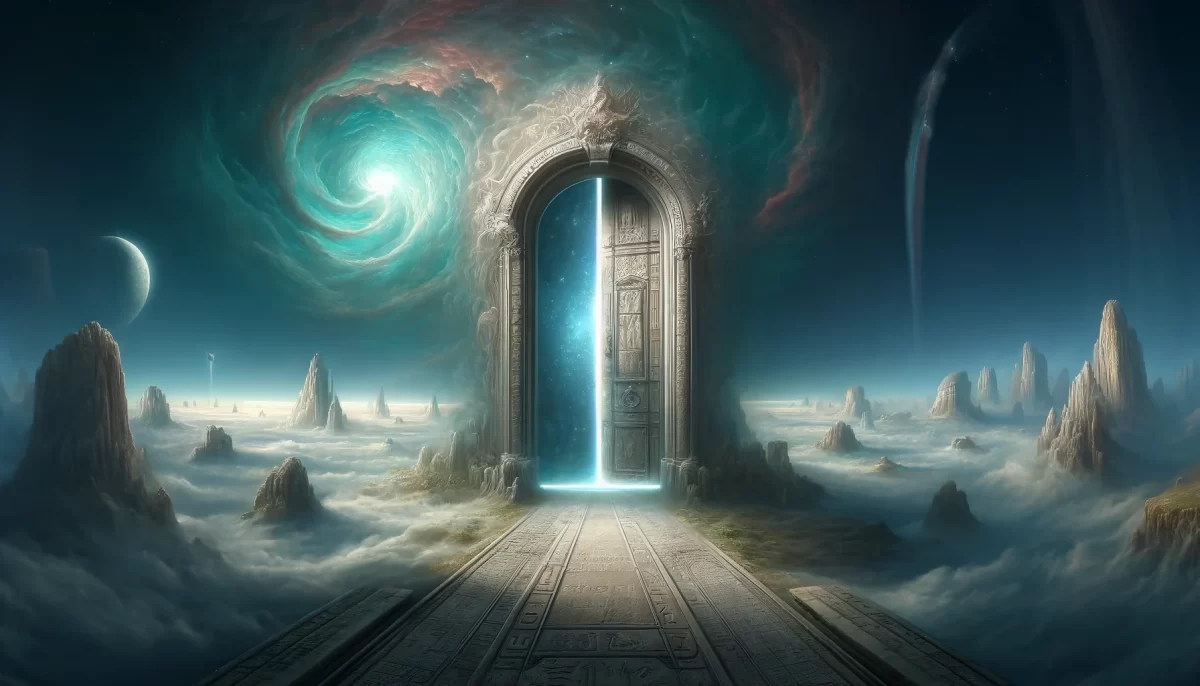
This poem speaks to the idea that our actions and behaviors have an impact on those around us, whether we intend for them to or not. The poem suggests that when we act in a certain way, such as being nice or presentable or creative, it can create a pressure on others to also act in that way, even if it’s not their natural inclination.
The use of the word “asshole” at the end of the poem seems to be a jarring and unexpected conclusion, perhaps meant to provoke a reaction or challenge the reader’s assumptions. It could be interpreted as a criticism of the idea that we should be mindful of our impact on others, or a frustration with the way in which societal norms and expectations can be limiting or oppressive. Ultimately, the poem encourages the reader to consider the unintended consequences of their actions and the ways in which they contribute to the world around them.